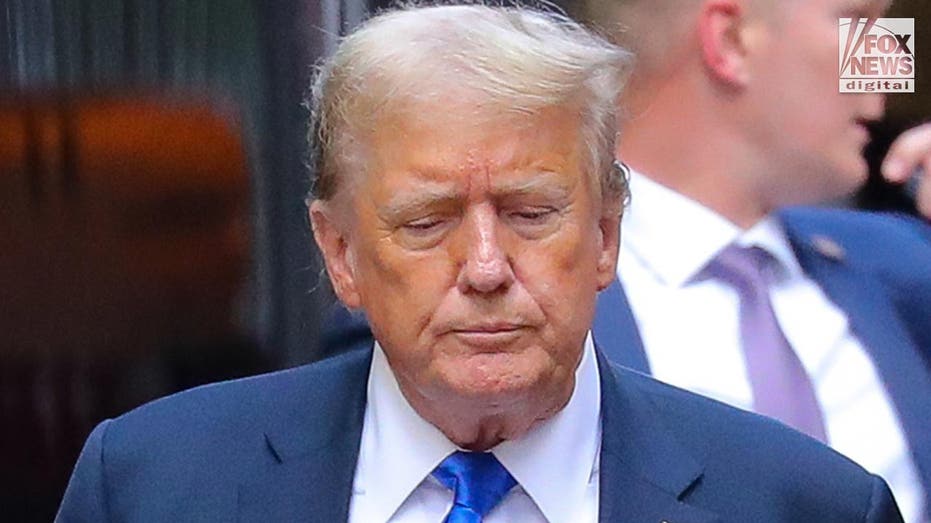A new poll conducted immediately following former President Trump’s criminal conviction in New York found a significant number of Republicans say they are less likely to vote for him in November.
One in 10 registered GOP voters said Trump’s felony conviction for falsifying business records would make them less likely to support him for president, according to a Reuters/Ipsos poll that closed on Friday. The two-day poll was conducted hours after a jury in Manhattan on Thursday found Trump guilty on all counts brought against him by District Attorney Alvin Bragg.
The poll also found that a majority of Republican voters, 56%, said the outcome of the case would have no effect on their vote and 35% said they were even more likely to support Trump, who maintains his innocence.
Even so, the potential loss of a tenth of Republican voters could decimate the presumptive GOP nominee’s chances to win back key battleground states President Biden claimed in his 2020 victory over Trump. That year, just 44,000 votes in Georgia, Arizona and Wisconsin separated Biden and Trump from a tie in the Electoral College, according to NPR.
TRUMP GUILTY VERDICT REVEALS SPLIT AMONG FORMER GOP PRESIDENTIAL PRIMARY OPPONENTS
Among independent registered voters, 25% said Trump’s conviction made them less likely to support him in November, compared to 18% who said they were more likely and 56% who said the conviction would have no impact on their decision.
The Reuters/Ipsos survey showed Biden and Trump nevertheless remain in a tight race, with 41% of voters saying they would vote for Biden if the election were held today and 39% saying they would pick Trump. The poll surveyed 2,556 U.S. adults nationwide with a 2 percentage point margin of error for registered voters.
ROMNEY SCORCHES BRAGG’S ‘POLITICAL DECISION’ IN TRUMP CASE: ‘MALPRACTICE’
The presidential election is a little more than five months away. Many Republicans have said outrage over Trump’s conviction has cemented support behind the former president. The Trump campaign posted impressive fundraising numbers a day after his conviction, totaling $53 million in the first 24 hours after the guilty verdict came down.
Trump is scheduled to be sentenced on July 11. Survey respondents were divided on whether he should go to prison for his crimes, with 53% of registered voters saying he should not be jailed over the hush money case and 46% saying he should serve time.
Trump’s conviction, and even imprisonment, would not prevent him from continuing to run for president. The Republican National Convention will be held in Milwaukee, Wisconsin four days after Trump is sentenced. The RNC adopted rules last year that did not include any specific provisions that address what happens if the presumptive nominee is convicted of a crime.
Trump has repeatedly called his prosecution a “witch hunt” and insisted that Bragg and Judge Juan Merchan, who donated to an anti-Trump group, were politically motivated. Voters were split, with 52% saying the prosecution was mainly about upholding the rule of law and 46% saying it was about trying to prevent Trump from returning to the White House.
Trump has been indicted in three other criminal cases, but legal wrangling could keep those trials from occurring before the November election. Legal scholars consider the pending trials — which involve charges Trump engaged in electoral fraud and that he mishandled classified documents after leaving office — to be more serious than the hush money case. Trump has pleaded not guilty to all the charges against him.
Most registered voters, 60%, said it was important for the three pending Trump trials to take place before the election, compared to 39% who said it was not important and 1% who did not answer the question.
Reuters contributed to this report.
























